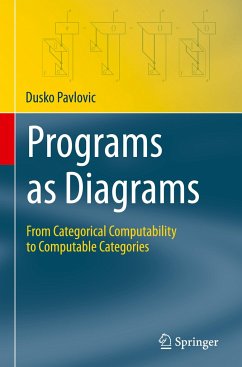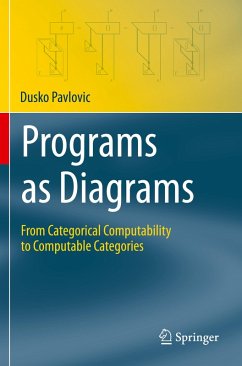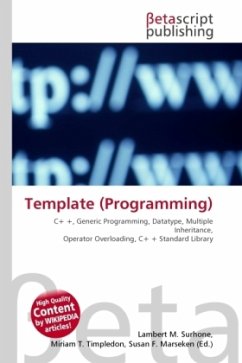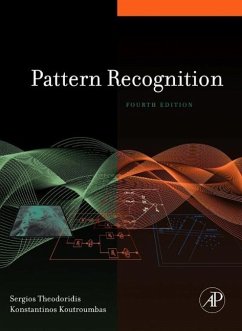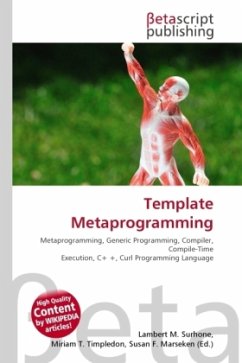
Template Metaprogramming
Versandkostenfrei!
Versandfertig in 6-10 Tagen
26,99 €
inkl. MwSt.

PAYBACK Punkte
13 °P sammeln!
High Quality Content by WIKIPEDIA articles! Template metaprogramming is a metaprogramming technique in which templates are used by a compiler to generate temporary source code, which is merged by the compiler with the rest of the source code and then compiled. The output of these templates include compile-time constants, data structures, and complete functions. The use of templates can be thought of as compile-time execution. The technique is used by a number of languages, the most well-known being C++, but also Curl, D, Eiffel, Haskell, ML and XL. The use of templates as a metaprogramming tec...
High Quality Content by WIKIPEDIA articles! Template metaprogramming is a metaprogramming technique in which templates are used by a compiler to generate temporary source code, which is merged by the compiler with the rest of the source code and then compiled. The output of these templates include compile-time constants, data structures, and complete functions. The use of templates can be thought of as compile-time execution. The technique is used by a number of languages, the most well-known being C++, but also Curl, D, Eiffel, Haskell, ML and XL. The use of templates as a metaprogramming technique requires two distinct operations: a template must be defined, and a defined template must be instantiated. The template definition describes the generic form of the generated source code, and the instantiation causes a specific set of source code to be generated from the generic form in the template.



